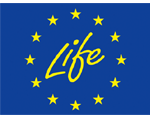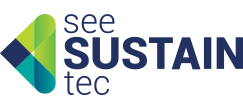
The LIFE programme is the EU’s funding instrument for the environment and climate action. The general objective of LIFE is to contribute to the implementation, updating and development of EU environmental and climate policy and legislation by co-financing projects with European added value. For the period 2014-2020, LIFE will provide around €3.46 billion to the protection of the environment and climate.
During the LIFE session in the “seeSUSTAINtec – an exhibition and forum on sustainable technologies for South-East Europe”, several experts in LIFE programme will take the floor, including a delegate from the LIFE National Contact Point in Bulgaria [TBC], Mr. Mihail Bachvarov and Ms. Sylvia Goranova (Neemo LIFE Monitoring Team) and representatives of successful LIFE-funded projects who will share their experience with the programme and the application process. The session intends to provide an overview of the LIFE programme and the funding opportunities it offers. It will include important highlights about the LIFE call 2020 and relevant information about the evaluation process and criteria, the thematic priorities, etc. This conference is of interest to potential applicants to the LIFE call for proposals. The representatives of the Program will also be on site to answer the attendees’ questions.
With regards to waste management & circular economy (CE), LIFE has continuously co-funded innovative projects that either prevent waste generation by modifying industrial processes or upgrade waste recycling technologies and processes in a wide range of industrial sectors all over Europe. Out of more than 4600 projects supported by LIFE from 1992, over 750 have been exclusively on waste & CE, being the theme most widely tackled by the programme. In particular, LIFE has focused on demonstrating innovative technologies that improve resource use in industrial processes or recycle specific materials from waste streams, such as hazardous, agricultural or municipal waste. Besides, LIFE has actively contributed to waste prevention by raising public awareness, promoting the exchange of knowledge and developing information tools for better waste prevention and management.
In the field of air quality, LIFE programme has funded more than 225 projects to date, with a total investment of more than 160 million €. These projects have produced new technologies for controlling air pollution in various sectors such as urban mobility, agriculture and industry. The programme has also developed innovative air quality monitoring and modelling tools to help decision-makers better implement legislation. Lastly, LIFE projects have focused on raising public awareness and encouraging behavioural change for better air quality






